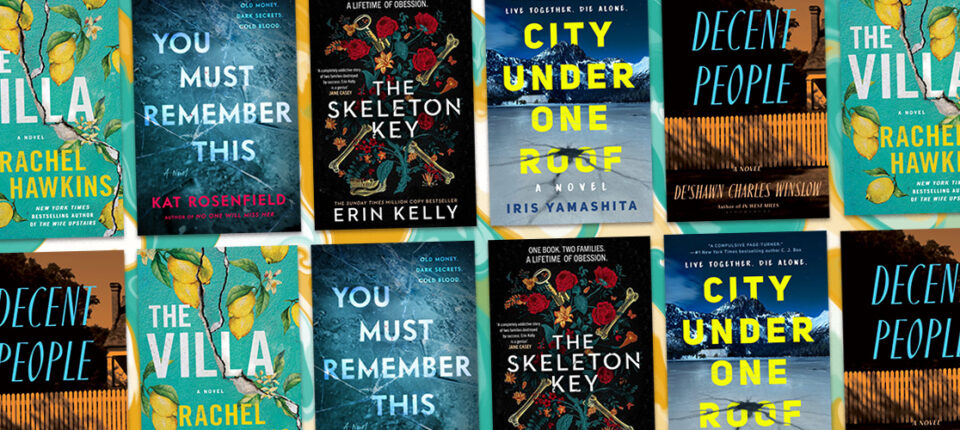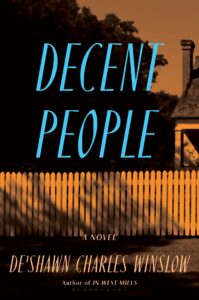Welcome to 2023, thriller lovers! January is here and I have the problem I like: there are easily ten books that could have made this column. I will mention in passing the two books I am most impressed by, and I know I’m not alone: Benjamin Stevenson’s Everyone in My Family Has Killed Someone (Mariner) and Jordan Harper’s Everybody Knows (Mulholland) are the kind of books that might stick with me until December and my 2023 list. I can also vouch for solid January books by writers you probably know by now: Jane Harper’s Exiles (Flatiron) and Mary Kubica’s Just the Nicest Couple (Park Row). So what’s left? Five books that have impressive premises, and/or exceptional writing, and/or exciting ideas. I hope the rest of the year is as jam-packed as this month.
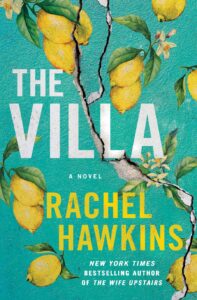
Rachel Hawkins, The Villa
(St Martins)
If you told me that a solid suspense novel was a cross between Ken Russell’s Gothic, a fantastic imagining of the time Mary Shelley, Claire Clairmont, Percy Blythe Shelley, and Lord Byron spent at an Italian villa where Frankenstein was conceived; and the story of a rock band renting a villa in 1974 for Fleetwood Mac-style debauchery which turned into a murder investigation, I would say I’ll take a dozen of that. Hawkins’ book lives up to its inspirations, with the very current theme of best friends renegotiating their relationship (I feel obliged to mention that one of them is an influencer). It’s creepy fun with no trace of “Under the Tuscan Sun shit,” a snippet of dialogue I plan to appropriate.
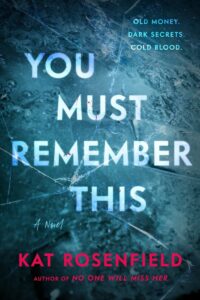
Kat Rosenfield, You Must Remember This
(William Morrow)
Rosenfeld’s book has a Gothic yet soapy quality I really like: we could call it Rebecca Syndrome. But You Must Remember this is not about the horrors of marriage but claims as its territory the more sweeping horrors of the family (I do think that we will see a lot of thrillers about the horrors of the family as the books born of the pandemic are published). The family in question is of course, rich; of course, all on some godforsaken island; and of course, full of backstabbing and rivalries both petty and pettier. When an 85-year-old family matriarch whose mind is riddled with dementia wanders into the icy water and dies, her kith and kin all gather to pick at the carcass of the family fortunes and the games begin. It’s Succession with a Rebecca vibe.
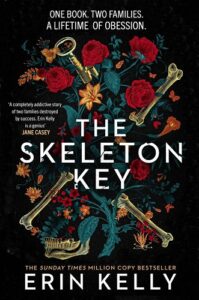
Erin Kelly, The Skeleton Key
(Mobius)
Some people like a book that opens with a map, but I’ll take the book with a family tree every time. Maybe I read Thomas Tryon at too tender an age, but I love when you need a diagram to keep track of the characters and their convoluted relationships (in my experience, families that are not convoluted also don’t merit a freestanding tree). Kelly is a writer I’ve read before—I particularly liked her sexual assault novel, He Said/She Said—but I would not have thought she was capable of a novel this original. I’ll stop now, except to add that there are two families here and the mysteries center around a book called The Golden Bones.
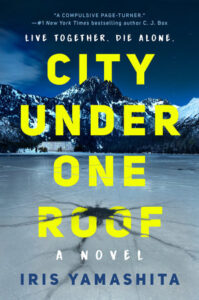
Iris Yamashita, City Under One Roof
(Berkley)
Yamashita’s book has one of the most original premises I’ve seen. The debut focuses on a detective trying to solve a murder in a town in Alaska so small that everybody lives in the same high-rise (this one also has the hands of the pandemic on it as Yamashita artfully renders the claustrophobia of lockdown). The only access to Point Mettier, population 250, is through a tunnel that is frequently blocked by the ravages of winter. A blizzard seals the tunnel with Cara Kennedy, an Anchorage police officer, stuck in town. She’s there to investigate a couple of body parts that washed up on shore alongside a local cop, but an astounding number of secrets can be contained in a town of 250 people.
De’Shawn Charles Winslow, Decent People
(Bloomsbury)
Winslow’s nuanced portrayal of life in small-town North Carolina and New York City is both affecting and very smart. A 1976 murder committed in the still segregated town of West Mils, North Carolina might have had a racial component as the victims were Black. The police have no interest in the case, but another detective takes it on: Miss Josephine Mills has just moved back to West Mills from New York City to marry her fiancé. As she finds out the victims were half-siblings of her fiancé, she has no choice but to start asking questions. Winslow is a skilled plotter, and Miss Josephine is a character I won’t soon forget.

